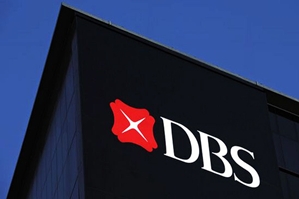- Joined
- Aug 30, 2008
- Messages
- 70
- Points
- 8


https://www.ft.com/content/14f929de-ffc5-11e6-96f8-3700c5664d30
China overtakes eurozone as world’s biggest bank system
Status reflects global influence but also reliance on debt to fuel economy
Read next
The Short View
Reading China's bond market
Monday, 6 March, 2017
Workers stand in a suspended platform ready to clean windows at the Shanghai World Financial Center in the Pudong area of the city © Bloomberg
Share on Twitter (opens new window)
Share on Facebook (opens new window)
Share on LinkedIn (opens new window)
March 5, 2017
by: Gabriel Wildau in Shanghai
China’s banking system has surpassed that of the eurozone to become the world’s largest by assets, a sign both of the country’s increased influence in world finance and its reliance on debt to drive growth since the global financial crisis.
While China’s gross domestic product surpassed the EU’s economic bloc in 2011 at market exchange rates, its banking system did not take over the top spot until the end of 2016, Financial Times analysis shows.
The lag reflects Beijing’s increased “financial deepening” — the term for the growth of a country’s financial system relative to gross domestic product. This has been fuelled by an extraordinary increase in bank lending since 2008, when the government unleashed aggressive monetary and fiscal stimulus to buffer the impact of the global crisis.
“The massive size of China’s banking system is less a cause for celebration than a sign of an economy overly dependent on bank-financed investment, beset by inefficient resource allocation, and subject to enormous credit risks,” said Eswar Prasad, economist at Cornell University and former China head of the International Monetary Fund.
Chinese bank assets hit $33tn at the end of 2016, versus $31tn for the eurozone, $16tn for the US and $7tn for Japan. The value of China’s banking system is more than 3.1 times the size of the country’s annual economic output, compared with 2.8 times for the eurozone and its banks.
World leaders and economists lauded China’s stimulus at the time for helping to stabilise global growth at a time when developed countries were deep in recession. Now, however, the stimulus is seen as leading to significant wasteful investment, industrial overcapacity and dangerous debt levels.
Analysts note that unlike in developed markets, Chinese local governments have relied heavily on bank loans to finance infrastructure. Unlisted, state-owned policy banks — notably China Development Bank, with assets of more than $2tn — play a central role, while commercial banks also participate.
“There’s a lot of hidden sovereign credit within the corporate loans on bank balance sheets, which can distort the picture when you do a cross-country comparison,” said Hou Wei, China banks analyst at Sanford C Bernstein in Hong Kong. “In most other markets, governments just borrow directly from capital markets. In China, it’s a unique situation.”
But in other respects, the headline figures understate the true scale of Chinese banks. Shadow banking has exploded since 2010. While ostensibly off-balance-sheet, most of this credit remains closely linked to commercial banks. The central bank warned last month that the distinction between on- and off-balance-sheet assets is often hazy due to the prevalence of implicit guarantees. Banks have frequently provided bailouts for off-balance-sheet products, even where no legal obligation exists.
In recent weeks, top leaders have signalled that they intend to shift policy focus away from stimulus towards risk control. But concrete action is still lacking. The flow of broad credit hit a new record in January.
In addition to controlling overall debt growth, economists say more developed capital markets can help diversify China’s financial system away from banks. The heavy reliance on banks is partly the result of tight regulation of stock and bond issuance. For the Communist party, however, a more diversified financial system reduces its ability to manage money flows.
“The Chinese government’s ambivalent approach to financial markets — seeing them as a useful resource-allocation mechanism but unwilling to let them operate freely, with the ostensible aim of maintaining stability and control — has often added to market volatility and made them less efficient,” said Mr Prasad.
Twitter: @gabewildau


